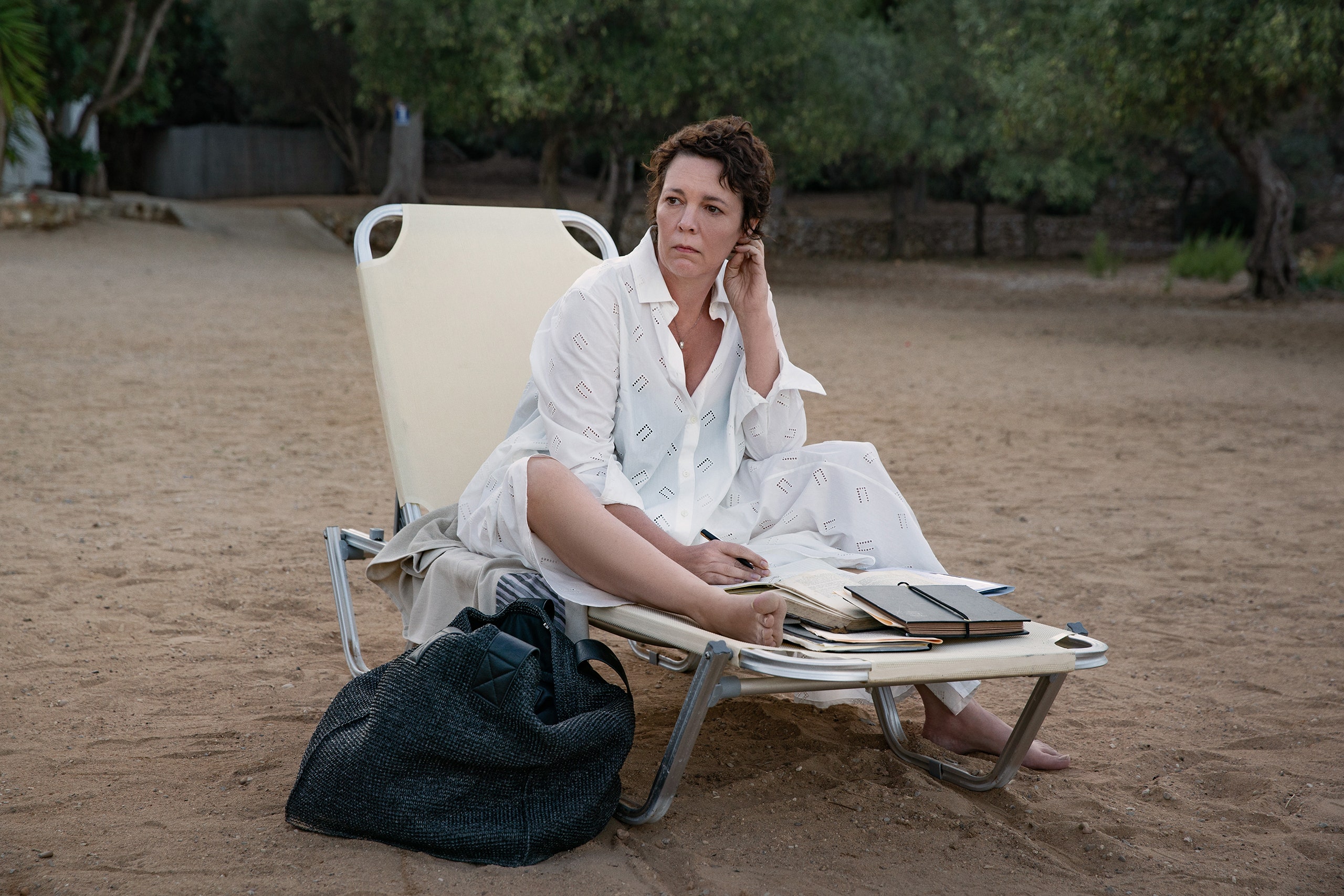Not only was I misled on the adventure of watching “The Lost Daughter” — a film that essentially follows a woman named Leda, played by Olivia Colman, on vacation — I also struggled to relate as she internally sorts through her past life decisions.
“The Lost Daughter” features a talented cast, a secluded location and dull yet aesthetically pleasing cinematography, all of which make the film feel both intimate and sinister. Unfortunately, a movie that I thought was filled with psychological twists ended up being unsatisfyingly predictable.
To clear the air, I felt misled by the mysterious arrival of the Greek American family to the island. Based on the actions of Toni, the family patriarch played by Oliver Jackson-Cohen, and the hostile confrontations between Leda and the family members, they seemed to be a part of a somewhat abusive crime family. While the point is that Dakota Johnson’s character, Nina, feels suffocated by the need to care for her young daughter, which parallels how Leda felt when she once was a young mother, I still couldn’t get my mind off the potential thriller I was about to watch.
I was wrong, though; there was no thrill in “The Lost Daughter” — at least not in the way one would think given the creepy and dramatic undertones of the trailer. Am I dissatisfied? I wouldn’t go so far as to say that, but I believed I was getting myself into something along the lines of “Gone Girl” meets “The Girl on the Train.” I thought it was a puzzle I was supposed to put together, and near the end, I would feel relief. Although, unfortunately, I did not, and I think that was the point.
Near the end of the movie, when Leda gives Nina her daughter’s lost doll back, Leda tells Nina that motherhood and life generally do not get better. In her anger from the conversation, Nina stabs Leda with a thin pin. While the storyline with Nina and her family ends there, Leda continues her trek, slowly hobbling to the oceanside and melodramatically collapsing near the shoreline, which is also the movie’s opening scene. Finally, Leda wakes up, as she was merely stabbed with a three-inch needle instead of a 6-inch “Scream” blade, and calls her daughters, who seem to be content when they answer.
Throughout “The Lost Daughter,” the audience slowly sees the consequences of Leda’s past decision to abandon her two daughters and husband for a work opportunity while simultaneously having an affair. Finally, viewers see at the end of the film that the relationship between her two daughters is mended, but neither party will ever forget what happened. That is the end goal of the entire film. We see a 48-year-old woman go on a solo vacation to a destination where another massive family comes along with their charismatic yet dark origins. The initial assumption is that Leda will somehow become entangled in their problems and inevitably fall victim to one of their many implied heinous crimes.
That doesn’t end up happening, and in a sense, that is why I am half disappointed because I wanted to see how that storyline would’ve unfolded. You see, though, this is not the Greek mafia’s storyline; it is a story of Leda’s existential preoccupation with decisions that she made 20 years ago but still haunt her today, so why would she have time to get involved in Nina’s family’s problems anyway? So, while Nina is critical to the storyline to remind Leda of the “crushing responsibility” of being a mother, her presence also sets up the storyline to reveal to the audience the decisions Leda has made. Even though her relationships with her present-day daughters are seemingly good, she must perpetually live with her past choices.
Leda is a shining example that motherhood is not for everyone, and the assumption that women are naturally maternal is false. Leda may come off selfish and immature, but she’s relevant in the sense that she has lost her independence and ultimately a part of herself since having children.
It’s not that she doesn’t love her children. Though, one may see it that way, considering she is unfaithful and briefly abandons her children, but should anyone quickly label her as a terrible person? Personally, I feel “The Lost Daughter” either allows the audience to hate Leda and reject her reasons for doing what she did or try to comprehend where Leda is coming from as a human, a woman and a mother in a society that condemns women to be strictly mothers and to desert all other life goals and aspirations.
Leda represents the human condition, but what exactly is that, anyway? Humans are flawed in so many ways, so how can a collective unit of faulty beings criticize someone for making similar mistakes or possessing similar feelings? When it comes down to a brutal decision that impacts other people, what is the suffering person, Leda, to do as she yearns for all the things that she put on hold to raise her children? It’s undoubtedly a concept to ponder whether one agrees with Leda’s decisions or not.
One could argue that Leda is just another lost daughter trying to find her way back home just as Nina’s daughter, the doll and ultimately Leda’s daughters were lost. Nonetheless, “The Lost Daughter” proves that a solo vacation to a Greek island surrounded by the mafia who has it out for you doesn’t have to end in mind-altering epiphanies and death, but rather, it can end with a confirmed string of reflections of irreversible decisions that one must live with.

















